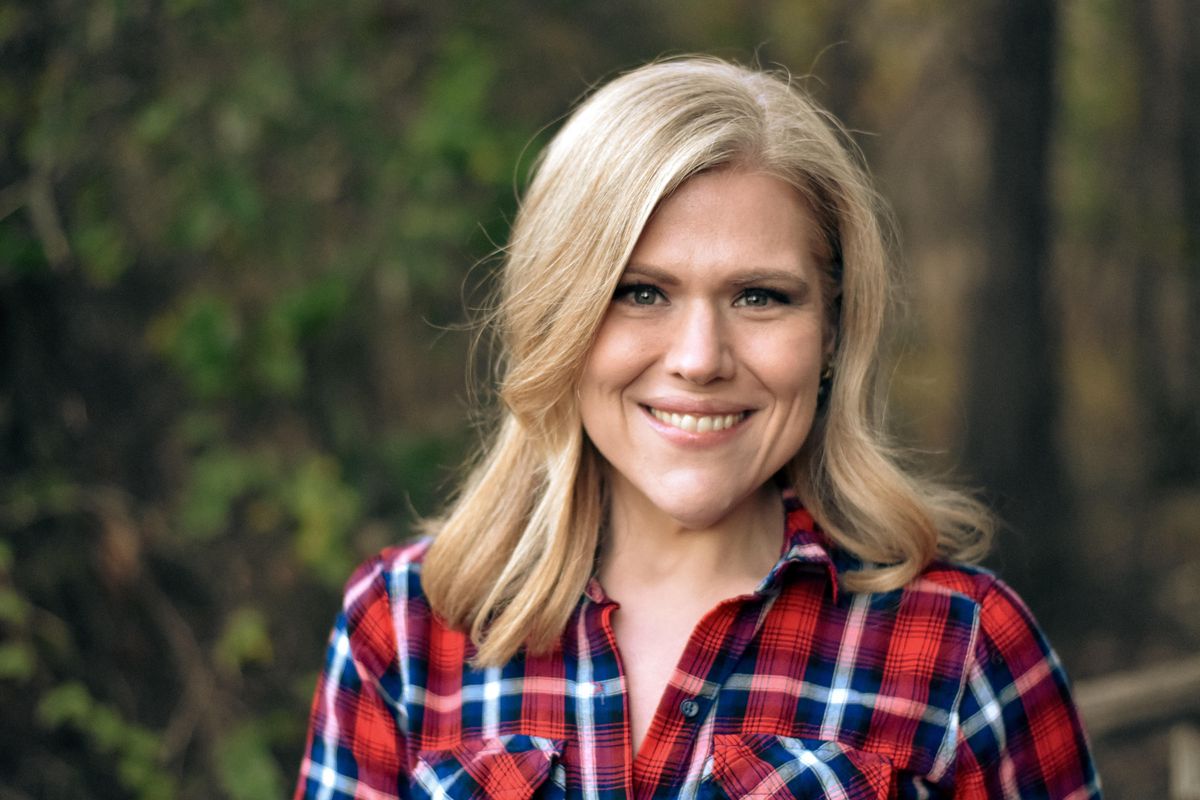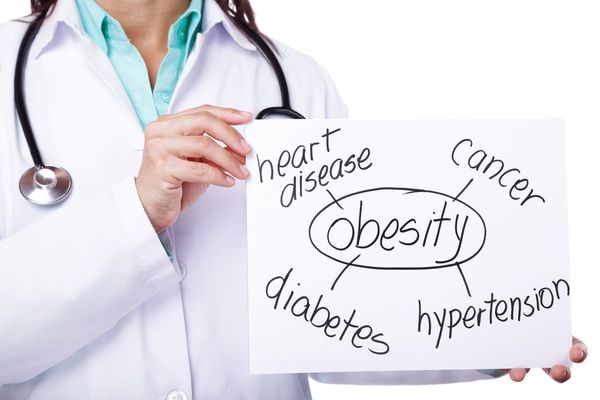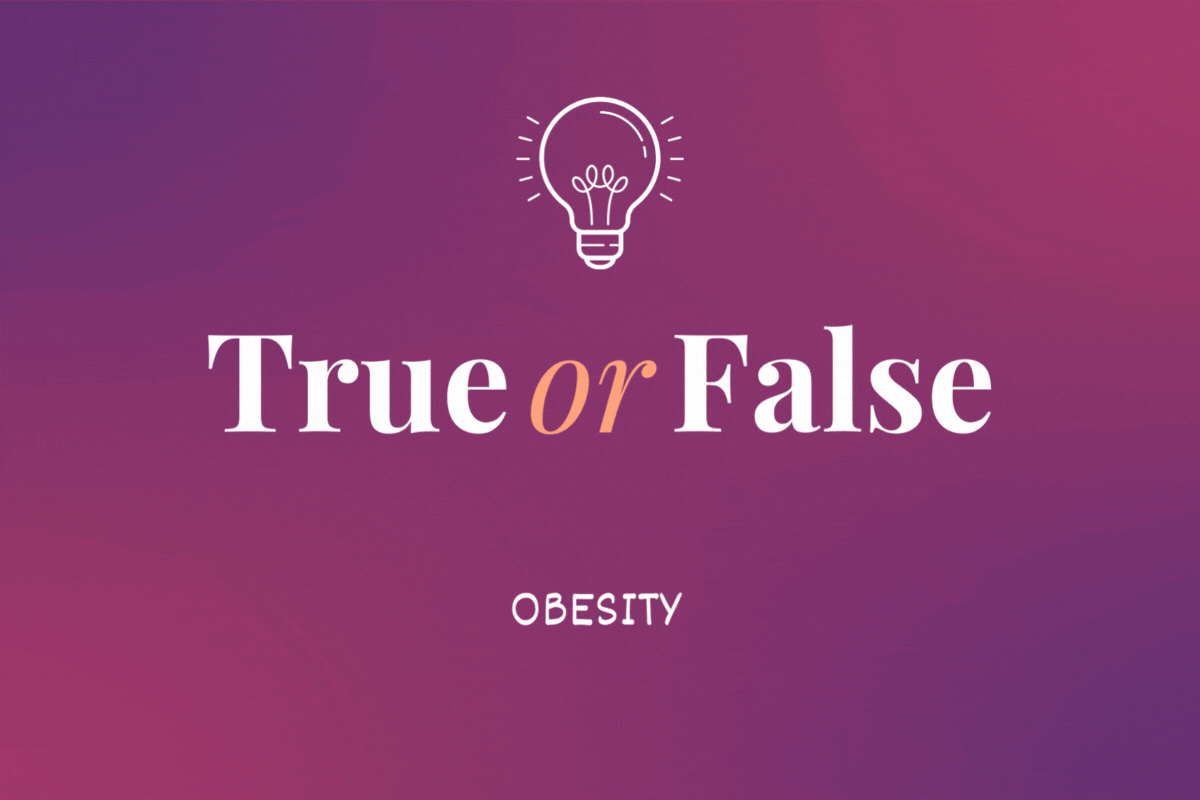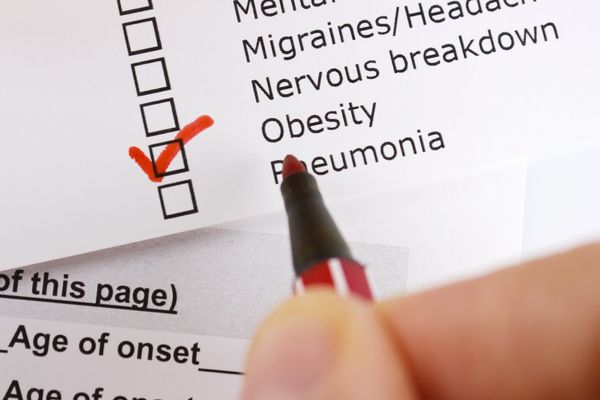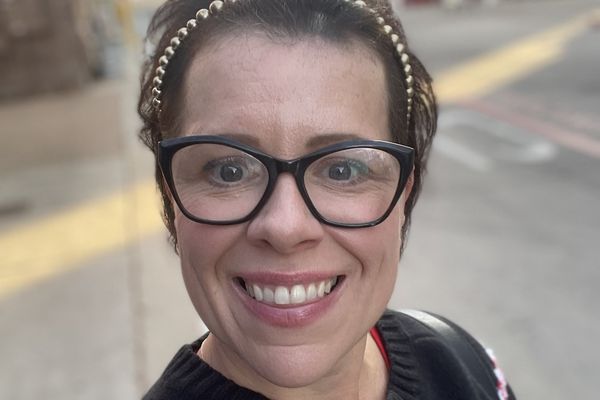As told to Marnie Goodfriend
I can’t recall a single childhood memory that wasn’t affected by obesity. As a 101-pound kindergartener, I remember my mom being upset when my school sent home one of those little school pictures with my weight underneath it, and I was the only child whose weight had three digits in it. The rest of the year, the number was blank under my school photos, which taught me early on to associate shame with my body.
I come from generational obesity where everyone in my family has class 3 obesity, or a BMI over 40. My mom’s weight has gone up and down her entire life, and she's done the math — she’s lost and gained 1,400 pounds throughout her life.
I grew up in a hardworking, low-income family of six, so I ate whatever was available to me. There were times when we received public assistance and went to the local food pantry, where they gave us calorie-dense foods like giant blocks of cheese and large cans of peanut butter. It’s not like we were browsing the aisles of Whole Foods. Asking for healthier alternatives was not an option.
When I was in graduate school, I still couldn’t afford choices. I had a significant amount of debt, and my bills were literally more than I made every year. There are times when I ate out of boredom or availability, but for the most part, I ate because I never felt full. Even when I’m hydrated and taking nutritional supplements, I battle a condition of literal hunger.
Throughout my life, doctors told me I needed to lose weight, but none of them offered solutions. It was a friend having gastric band surgery that inspired me to do my own research, attend seminars to meet bariatric surgeons and learn more about the procedure. I found a doctor who had done over 1,000 surgeries, and I charged $14,000 to a credit card that finances healthcare-related expenses for the outpatient procedure. I quickly lost 180 pounds and kept it off with a self-directed cardio and weightlifting routine four to five days a week, a healthy diet, and an appetite suppressant. Five years later, my band failed, but the doctors didn’t recommend replacing it because of my age and the possibility that it would slip again. So, it was still in my body, but it wasn’t doing anything. After gaining 44 pounds in six months without it, I realized how effective it had been.
I eventually had the band removed and underwent a sleeve gastrectomy. The procedure removed part of my stomach, which made me feel fuller sooner. Using prescription weight loss medications has always been a part of my regimen, and, although I’ve had surgical intervention, it was medication that significantly slowed my regaining weight, helped me understand my overall metabolic health and ultimately decreased my appetite.
Eventually, I hit another hurdle. I regained 90 pounds in the four-year period after I got pregnant and had my daughter. This time, I flew to Salt Lake City for an emerging procedure called SADI-S (single anastomosis duodeno-ileostomy with sleeve gastrectomy). Between that procedure, exercise and medication, I reached my personal goal in just over a year and have currently maintained a healthy weight for almost two years.
Although many people don’t have all the options I had when it comes to receiving medical care, and I’m grateful I had those options, they still didn’t change the fact that some of the most biased interactions I’ve experienced in my life were in doctor’s offices. It wasn’t playground bullies, but medical professionals who didn’t believe I was making healthy food choices or exercising, because they didn’t believe obesity is a disease but a matter of personal choice.
Throughout this journey, I learned it’s important to advocate for your health. Now, when I see my primary care physician, I’ve learned to ask for things like, “Can you write that exactly in my chart?” I know I need to be a few steps ahead and have my conditions documented in a specific way for my insurance to cover procedures. The process is emotionally taxing.
These days, I also prioritize my mental health and see a therapist regularly. I had a lot of trauma around weight that I didn’t realize. I didn’t think about my overall health for so long that I neglected other things I needed support for.
It wasn’t until my 30s that I associated exercise with mental health, instead of failure to reduce my body size. Exercise was what I was always told would make me lose weight, but for me, it made me gain weight in muscle and that felt like a punishment. It’s hard to enjoy something you feel you’re failing at. The truth is, exercise doesn’t feel good in a 350-pound body, but when I reframed it as “I feel better mentally when I do this,” my motivation shifted. Walking, isometric yoga, hot core and barre help me focus on balance and the strength of my own body, which makes me feel mentally refreshed afterward. With this multi-pronged approach, I am now considered healthy for the first time at 140 pounds and a 24 BMI.
Taking charge of my health led me to the Obesity Action Coalition (OAC), which I’ve been involved with since 2009. I’ve lobbied for bills on Capitol Hill, including the Treat and Reduce Obesity Act, and have spoken to thousands of people affected by the disease. Their stories are heartbreakingly similar to mine — not being properly treated for a chronic, complex, lifelong disease and being made to feel like it was our fault.
I have at least one person a week, mostly women, reach out to me through my blog or social media and ask, “Where do I begin?” We’re so hungry for connection and to be seen as individuals fighting a disease. I help them get comfortable saying, “This is what I want and what I need.” My experience with obesity care is that if you want it, you must advocate for it. Doctors may not have provided me with a road map, but I’ll continue to draw my own and help others do the same.
This resource was created with support from Novo Nordisk.
- I Recovered from Obesity and Bulimia Triggered by Sexual Abuse ... ›
- Weight stigma is a burden around the world – and has negative ... ›
- Obesity Is a Disease That Can Be Managed in Many Ways ... ›
- What You Need to Know About Obesity - HealthyWomen ›
- Obesity - HealthyWomen ›
- Weight Stigma Is a Burden Around the World – and Has Negative Consequences Everywhere - HealthyWomen ›

